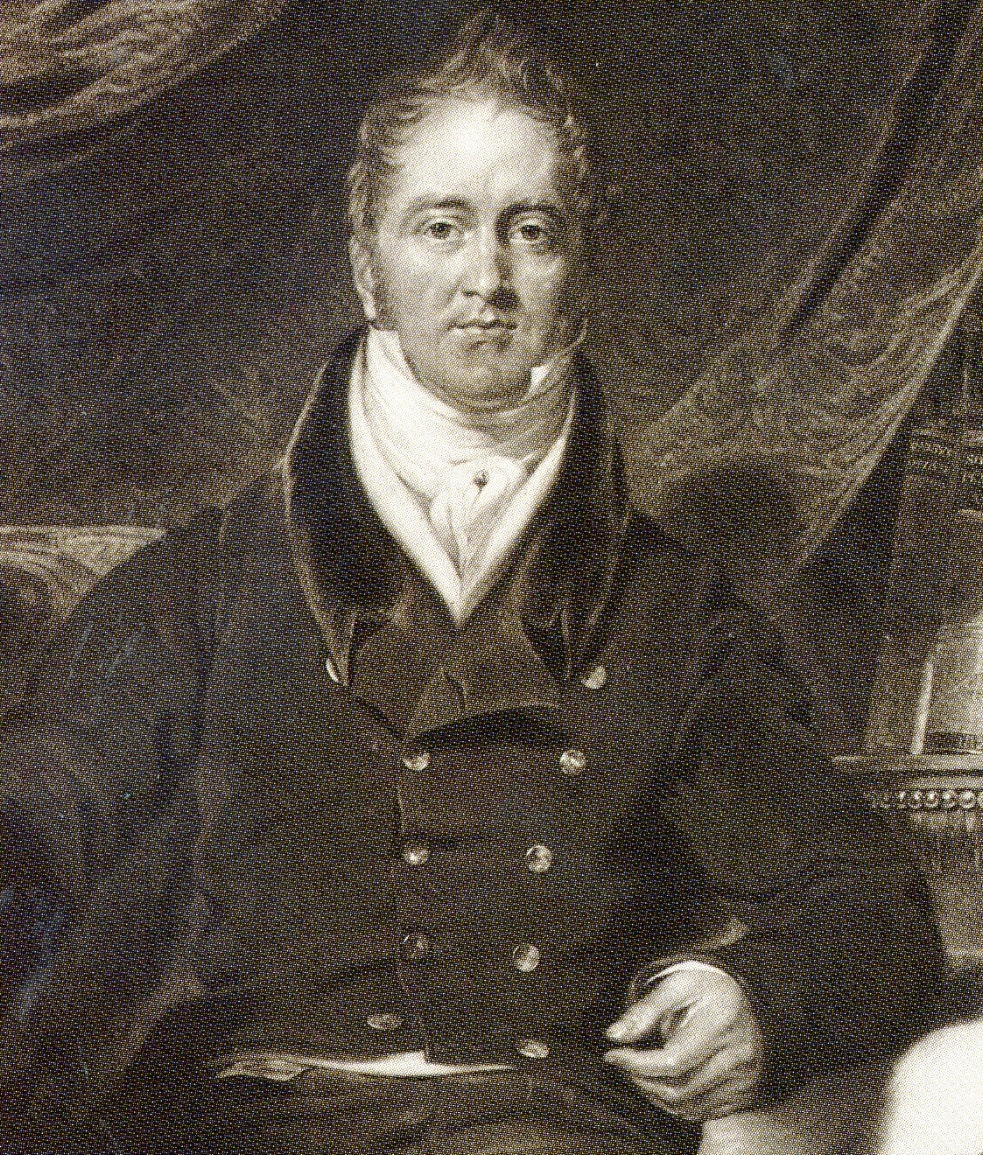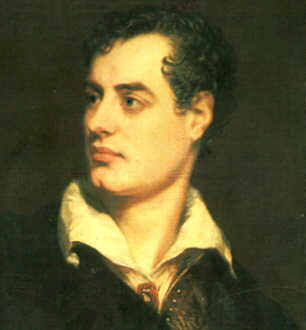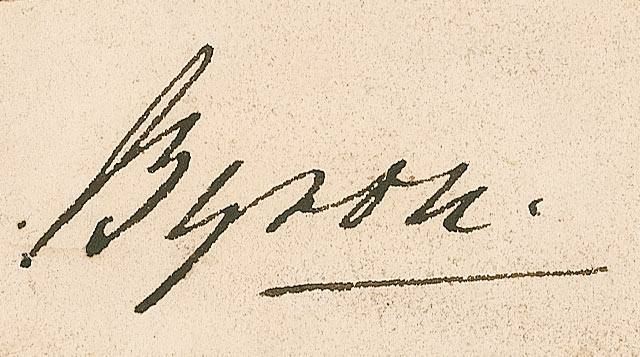Someone should write a book about him. It is probable they already have.
His father was a publisher before him, and his son, and grandson, and great-grandson after him. Albemarle Street, just off Piccadilly, did very well for Mr John Murray. A tall, thin London premises, it was occupied by the same publishers for 200 years after John took it over.
He had a knack for signing the big names: Jane Austen, Washington Irving, Sir Walter Scott.
But probably his most colourful author had to be George Gordon. Or Lord Byron, to you.
It was the poet Robert Charles Dallas who approached Murray with the script of Childe Harold’s Pilgrimage, a poem about a world-weary young man travelling to rid himself of a chequered past. A childe was a mediaeval term for a knight-in-waiting.
Other publishers had rejected it. Murray, when he received the manuscript, held onto it for a while, for it Harolde was a wild childe, and the British public a senstitive lot.
But not that sensitive. Murray published and was not damned. Byron’s works brought him profit, and it also brought him a man of wearing eccentricity. It is Murray’s memoirs which record the endearing habit Byron had of dropping into his publishers to watch the sheets passing through the press and practicing his fencing moves using a cane.
“He…used to amuse himself,” Murray recalls, “by renewing his practice of ‘Carte et Tierce,’ with his walking-cane directed against the book-shelves, while Murray was reading passages from the poem, with occasional ejaculations of admiration; on which Byron would say, “You think that a good idea, do you, Murray?”
“Then he would fence and lunge with his walking stick at some special book which he had picked out on the shelves before him. As Murray afterwards said, ‘I was often very glad to get rid of him!’ ”
Thence began a long and complex relationship. Byron’s letters to Murray show squabbling and bickering which seem almost brotherly; but also as the years progress, a frank intimacy. The letters from abroad, when Byron became ill, are sad:
“On Sunday (the 15th, I believe), I had a strong and sudden convulsive attack which left me speechless, though not motionless, for some strong men could not hold me; but whether it was epilepsy, catalepsy, cachexy, apoplexy, or what other exy or epsy, the doctors have not decided, or whether it was spasmodic or nervous, &c., but it was very unpleasant, and nearly carried me off, and all that.”
The last letter to Murray is from Byron’s valet of some two decades, to Murray. Unbearably plaintive, it informs him of Byron’s death, ending with a post script: “P. S.: I mention my name and capacity that you may remember and forgive this, when you remember the quantity of times I have been at your house in Albemarle-street.”
The story does not end there.
Some time shortly after Byron’s death, in 1824, two executors of Byron’s will arrived at the door of Albemarle Street.
They were ushered into an upstairs room and in front of an imposing fireplace (which still exists there today) they showed John Murray two volumes.
They were Lord Byron’s diaries.
We all know Byron was by that time a national hero: his funeral had been of the greatest pomp, for all the world like a state funeral. But the diaries: oh, dear, the diaries. They were full of the most scandalising revelations.
We shall never know what they were. Because the result of the deliberation was to throw the volumes on John Murray’s fire.
And thus a man’s heroic stature was preserved in the eyes of a nation, and his reputation – rakish as it was – maintained for posterity.
Yet a national treasure, a priceless manuscript was lost to us for all time, in the ashes of a fireplace in a house in Albemarle Street.
If we could have made it there, in some time-travelling crusade – would any of us have stopped John Murray?



I tried, read them and was so horrorfied to find the valet was the one who did all the writing, that I agreed and we burned them, to keep the secret safe for ever.
Sidey, you always see the stuff everyone else misses…
😉
cause I look sideways?
Most probably 😀
Byron has always been a hero of mine. There is even a bronze bust of him in our fireplace next to the wood burner. He sits there and chats with Thomas Carlyle whose head and shoulders happen to be there as well.
He was an extraordinary human being, Roger.And good to see him in excellent company there next to the wood burner.
I would have been tempted to save them. If The Daily Mail was around back then I imagine they would have paid a fortune to serialise them.
You’d be rich, Guy 😀
Oh the tragedy! I would have produced my sword and ensured that the manuscript was preserved for publication at a far later date 🙂
Me too, Gabrielle. After the dust had settled, so to speak.
I would have tried to save them, Kate, even if but a few pages, whisked out of the fire.
I must thank you. Besides reading this great post this morning, I didn’t know what a childe was until reading this.
It’s a strange old word, Penny. So strange that Stephen King felt compelled to use it in his Dark Tower novels.
If Murray was carrying out Byron’s wishes, I would not have tried to stop him.Too often, a person’s living wishes are ignored when they are gone and can no longer act on their own behalf.
I don’t think this should stop someone from writing fictional diaries in the style of Byron. In the right hands, what fascinating novels they could be.
They would: but I suspect that the secrets that went on the fire were possibly fact stranger than fiction, Andra. Still, I think you are right. Diares are often seen as private concerns which will never be read.
I am inclined to think that some things are better left unsaid and unread, and that the modern tendency to disinter and pick at bones is not a healthy one. If the warts are given a photoshop treatment, well and good.
You’re right, of course. But my imagination fills in the contents of those diaries more luridly than they were, I’m sure, in reality. I wonder if getting it all out in the open might have stopped even wilder speculation?
Ooh, another thing I didn’t know. It’s an intriguing conundrum. Just what was burned? And why do I get the feeling that herein lies one of those amazing Doctor Who episodes – like their version of why “Loves Labours Won” never got published… :-0
Ooooh, wouldn’t that be a great episode? I’d stay rooted to the sofa to watch hours of that plot. Off to the BBC writers room with you!!
I believe in a person’s right to privacy. I don’t think writers owe the public anything more than what they write for publication. That said, I would have held on to those diaries with every fiber of my being.
Ha! My feeling exactly, Kathy. I would give anything to have known what was in them.
While I’d be curious to know what his life and private thoughts were like, I think that your private life should be private … if that’s what you want.
A “friend” of Jackie Kennedy revealed things Jackie had written – and wanted destroyed – long after her death. I don’t believe the information enriched anyone and certainly tarnished a carefully preserved image. I think Jackie would have been horrified by her friend’s betrayal.
Very good point, Judy. She probably would.
Hmm . . . I don’t know that I would have attempted to stop him from tossing them into the flames.
Years ago I destroyed all my diaries because I didn’t want anyone to read them, especially with today’s tendency to zoom in on sound bites and bits. I have never regretted that decision.
And my favorite Lord Byron quote:
“On with the dance! Let joy be unconfined.” ~ Lord Byron.
Lovely quote, Nancy. Joy was his modus operandum.
I am echoing Nancy’s words. I destroyed all my journals a few years ago, and hope I got them all! 🙂 I think I would assume Byron had left careful instructions to burn them, and I’d want to honor that decision. But I’d be less than honest if I didn’t admit I would have loved to peek inside. Lord Byron is such a favorite and I really enjoyed learning more about John Murray. I feel a Byron reading frenzy coming on!
Have a lovely time with it, Debra. Byron is a wonderful writer.
Would have loved to take a peek before I let him burn it for sure 🙂 There is a curious voyeur in all of us isn’t there Kate?
There is. After a life which was hardly conventional the secrets that diary took with it must have been something.
My dear friend, I have nominated you for an award- congratulations! Please visit this link : transcendingbordersblog.wordpress.com/2013/07/11/wonderful-team-membership-award/
Thank you! How kind of you! Apologies for my late reply – I will be along to say my thanks at your siite presently.
I most certainly would have. LB had every opportunity to burn the himself before he died, but didn’t…which suggests that he wasn’t averse to them becoming public.
interesting argument, BB. I always get the feeling Byron was rather an exhibitionist…
Oh what a senseless act. I would have fought him for those two volumes. 🙂
Oh, to know what was inside…
If he were alive now, it would have been in blog form and hitting the delete button would not have the same result!
That’s true, Tandy. So dificult to shake a cyber-history!